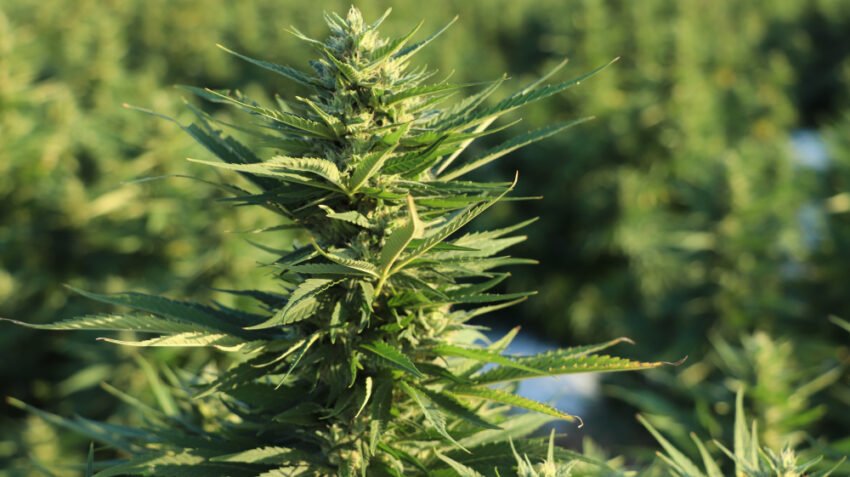The United Kingdom stands as the largest global producer and exporter of legal cannabis for medical and scientific purposes, yet it enforces strict regulations that limit domestic access for its citizens. This situation creates a notable contrast between economic potential and healthcare availability, reflecting the complexities of the UK’s cannabis policies.
UK’s Dominance in Cannabis Production. According to the International Narcotics Control Board (INCB), the UK has consistently topped global rankings in cannabis production for medical and scientific use. In 2016, the UK produced around 95 tonnes of legal cannabis, more than doubling the previous year’s output. By 2021, this figure surged to over 329 tonnes, accounting for approximately 43% of global medical cannabis production. Most of this cannabis is intended for export, catering to international markets where cannabis-based treatments are accepted and legally available. This export-driven industry has positioned the UK as a leader in cannabis innovation and distribution worldwide.
Limited Domestic Access to Medical Cannabis. Despite its prominent role as a cannabis supplier, domestic access remains severely restricted. Medical cannabis was legalized in November 2018, influenced by public campaigns surrounding patients with treatment-resistant epilepsy. However, access through the National Health Service (NHS) is limited, with only 18 prescriptions for unlicensed cannabis-based products reported in England in 2019. The stringent guidelines allow prescriptions primarily for severe epilepsy, spasticity related to multiple sclerosis, and nausea from chemotherapy. As a result, most patients needing medical cannabis must turn to private healthcare, leading to high out-of-pocket costs.
Legal Status of Cannabis Seeds. The legal status of cannabis seeds adds another layer of complexity. While cultivating cannabis remains illegal without a license, purchasing and owning cannabis seeds is legal. These seeds are often classified as collector’s items rather than potential drug-producing plants. Companies like MSNL Seeds legally sell cannabis seeds, but germination without a license is prohibited, risking criminal penalties for growers. This inconsistency creates confusion among the public regarding cannabis laws, separating the act of owning seeds from the illegal act of cultivation.
Public Awareness and Policy Disconnect. Public knowledge about the legality and availability of cannabis products in the UK is limited. Despite being the leading exporter, many British citizens are unaware of the country’s cannabis industry scale and its medical applications. The lack of NHS availability contributes to this ignorance, as cannabis has not gained traction in mainstream healthcare discussions. Furthermore, restrictions on advertising and public information campaigns lead to misinformation about cannabis, prompting calls from patients and advocacy groups for better transparency and education.
Economic and Social Implications. The UK’s cannabis paradox presents significant economic and social challenges. By restricting domestic access while promoting international exports, the UK overlooks potential economic growth opportunities. Expanding access to medical cannabis could stimulate local economies, create jobs, and foster new avenues for scientific research. Additionally, restrictive policies disproportionately affect patients with chronic conditions who could benefit from cannabis-based medicines. Without broader NHS support, these patients often face difficult choices, resorting to illicit markets or costly private healthcare, which exacerbates healthcare inequities.
Comparing German and UK Cannabis Policies. Germany’s recent legalization of recreational cannabis offers insight into potential economic benefits. A study from Heinrich Heine University estimated that legalization could generate around €4.7 billion annually in tax revenues and savings, alongside 27,000 new jobs. In contrast, the UK’s illegal cannabis market is estimated to be worth £2.5 billion per year. Legalizing cannabis in the UK could potentially generate between £1 billion and £3.5 billion annually in tax revenues, creating between 10,000 and 41,000 jobs. Transitioning to a regulated market could increase tax revenues and relieve pressure on the criminal justice and healthcare systems.
To resolve the current paradox, the UK government should reconsider its cannabis policies. Aligning its global cannabis production prowess with accessible domestic regulations could improve patient outcomes and economic prospects. Possible actions include revising NHS guidelines for broader access to medical cannabis, promoting public education campaigns, and reassessing cultivation laws to allow regulated growth under appropriate licenses. Such reforms could empower patients, reduce healthcare inequalities, and leverage the UK’s robust cannabis industry.
The UK’s status as the leading exporter of medical cannabis highlights the need for policy changes to improve access and public awareness. By addressing these challenges, the UK can maintain its global leadership while developing progressive, patient-centered healthcare solutions. Following Germany’s example could unlock substantial economic potential, generating significant tax revenues, creating thousands of jobs, and easing burdens on law enforcement and healthcare systems.


